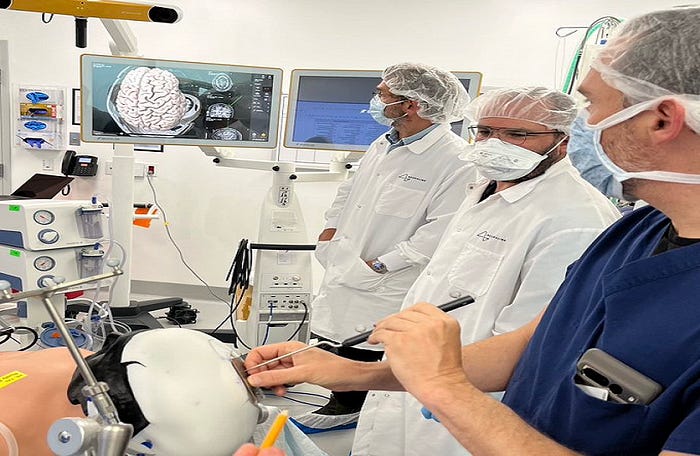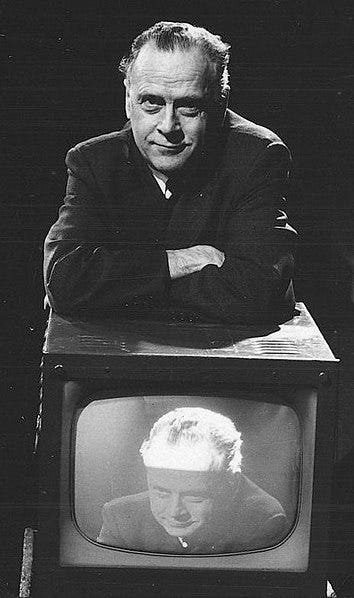A Lesson On Remaining Human As Our World Becomes More Digital
Brains with circuits, a philosophy of technology, and perspective through time travel

As I’ve gotten older, it’s getting easier to see how technology is changing everything, from communication to how we view time. In essence, this digital world is changing what we are.
Instead of calling friends I grew up with, we now communicate through social media, often using memes to make points instead of typing out a long-winded reply. Part of the conversations also involve trading funny or interesting videos.
We’ve killed the idea of idle time too. My 45-minute drive to work was once a blank time with the radio playing in the background. Now, Bluetooth enables me to learn from podcasts or listen to books at 1.5X speed. Others fill in idle minutes catching up on streaming series or the news.
These appear like big changes. But as I watched Lex Fridman interview Elon Musk, I realized within the next few years we’ll live through a technological revolution. Their topic of discussion was Musk’s company Neuralink.
Recently Neuralink implanted a device in a test subject’s brain who was paralyzed. This individual can now control devices with his mind via Bluetooth, enabling him to do things for himself which he couldn’t do before.
Musk calls the device “Telepathy,” and believes as more circuits are added, that’s what it’ll give humans — telepathic-like abilities. Beyond just fixing damaged people, it’ll enable anyone to communicate thousands of times quicker than we can today.
Musk says this will expand our biological limitations, enabling us to keep up with AI.
The high bit rates of speed will also change what we fundamentally are.
Within 10 to 15 years he sees hundreds of thousands with Neuralink enhancements.
But how do we navigate such a revolutionary change? Well, a philosopher of technology can help us take our first steps by recognizing the change itself. Oddly, he saw many aspects of our world today back in the 1960s.
Realizing That The Medium Is The Message
Doctor of Philosophy Marshall McLuhan headed the Centre for Culture and Technology at the University of Toronto. His area of specialization was electronic media. Not only did he research television and digital media’s effect on human culture, but McLuhan became a media sensation himself.
During the 1960s he was a regular guest on many TV shows, and his last book The Medium Is the Massage: An Inventory of Effects, sold about a million copies.
In an interview with the BBC in the 1960s, McLuhan explains tools — like wheels and mechanical devices — have always become extensions of the human body. However, “electromagnetism is an extension of our nervous system, not merely an extension of our bodies.”
The switch from mechanical devices to circuitry involved huge changes for humanity. According to McLuhan:
“One of the effects of switching over to circuitry from mechanical moving parts and wheels, is an enormous increase of the amount of information that is moving. You cannot cope with massive amounts of information moving in the old fragmentary classified patterns.”
He says with this speed and amount of information, pattern recognition becomes incredibly important (today, we use algorithms for this.) McLuhan also talks about the importance of compression to deal with extreme levels of information.
In his interview with Fridman, Elon Musk reminds us those ever-present memes we all love are, in fact, data compression. They compress multiple levels of meaning into simple pictures.
McLuhan in his book Understanding Media, goes on to say in our current age we often are overly focused on the specific meaning of messages. However, the medium it travels in is also important. This concept created McLuhan’s most famous quote: “The medium is the message.” His final book is a word play on this statement.

The philosopher believed the technology in which messages were exchanged changes society in ways we can’t recognize, until much later after the changes are complete. Everything from culture, norms, values, religion, and history can be altered without notice.
The change in medium can create an entirely new human environment. For instance, look at the world today.
In 2010, it’s estimated 2 zettabytes (or 2 trillion gigs) of data was generated, consumed, and copied. By 2025, 181 zettabytes are expected.
Our phones have become extensions of our brains. How often have you done a web search in the middle of a conversation to find some piece of information you can’t remember? When was the last time you used a physical map?
Digital technology has imbedded itself everywhere. It occupies our “idle time,” finds its way into our clothing, and even attaches itself to our front doors, telling us who’s standing outside.
It’s also made our world so fast, companies like Neuralink are trying to put circuits into our brain to keep up with everything. If, like McLuhan says, the medium is destined to change us without notice, how can we remain human before humanity itself is nothing but a meme?
Well, the great writer and philosopher C.S. Lewis has a strategy that may help.
Living In Many Times Is A Cure For The Blindness Of Today
“The scholar that has lived in many times is…in some degree immune from the great cataract of nonsense that pours from the press and the microphone of his own age.”
— C.S. Lewis, Learning In War Time
In 1939, C.S. Lewis and the faculty at Oxford, England faced a dilemma. On the verge of World War II, many on the staff of the college wondered if education should continue during this possible international emergency. Many thought the college should close.
Lewis argued for education to continue, even if bombs were falling on their heads. He acknowledged this seemed like “fiddling while Rome burns,” but their time of chaos wasn’t unique, and this should be kept in perspective.
In his speech Learning In War Time, Lewis notes no time or age is perfect, so there’s always been a reason to stop or put things off. He says:
“Plausible reasons have never been lacking for putting off all merely cultural activities until some imminent danger has been averted or some crying injustice put right. But humanity long ago chose to neglect those plausible reasons. They wanted knowledge and beauty now, and would not wait for the suitable moment that never comes.”
Lewis reminds his listeners, insects hide in their hive and just focus on survival, but we’re not ants or bees.
Humans produce math formulas in besieged cities.
We argue about the nature of life in prison cells.
We talk about sports on the way to battles.
Even the Spartans combed “their hair at Thermopylae.”
Lewis knew these things because he was so well versed in history and philosophy. This gave him perspective.

He believed “intimate knowledge of the past” acted like a compass which directs you away from the blindness of the present. The person who travels widely through time won’t be “deceived” by the voices from the mob of the now.
That perspective is needed more than ever today in our compressed time of memes and our fast digital world that’s only getting faster. With all this in mind, let’s combine everything we’ve learned.
Laying Anchor So We’re Not Blown Away By The Digital Storm
Göbekli Tepe is a 12,000 year old site discovered in Turkey, and often called the world’s first temple. It was constructed by hunter-gatherers and consists of circles made of stone pillars. Some of these weigh 20 tons.
It was created at a time of intense change, as the world moved from the Old Stone Age to the Neolithic or New Stone Age. Societies slowly changed from nomadic lifestyles, to settled communities. This sparked the Neolithic revolution, which consisted of the following things we take for granted.
Agriculture
Writing
Cities
Religion and philosophy
Government, kingdoms, and nations
However, Martin B. Sweatman from the University of Edinburgh says he’s found another invention here — a calendar. The researcher believes he’s discovered a sophisticated calendar that tracks lunar and solar cycles. If true, this predates other calendars by thousands of years.
So, this Neolithic revolution not only brought about all the things above, but invented our concept of time as we know it. Talk about a massive change. So, we’re not the only human culture living through shocks to the world around them.
Therefore, we’re not doomed to be overwhelmed by the tsunami of tech coming our way if we do certain things to keep our heads above water.
First, as McLuhan notes, the medium is the message. If we can step out of our present and examine not just the content, but the container of the technology we use daily, it’ll make us more aware. Obviously, this won’t be easy.
It’s much easier to sleepily click on buttons handed to us. Or even just to think about clicking them with Neuralink. But we’re ultimately responsible for actively maintaining our humanity as our world becomes more digital.
Second, it’s crucial we live in many times as Lewis says. The perspective we gain can act as a firm anchor against the chaos, which now moves at a digital speed. History, philosophy, and examples of how our ancestors triumphed and failed in the past is an incredible compass to lead us.
To remain human as the world becomes more digital will require diligence and a perspective shift.
We’ll need to view the technology of the present through the observant eyes of McLuhan and connect it to the past with the wisdom of Lewis.
-Originally posted on Medium 8/19/24


